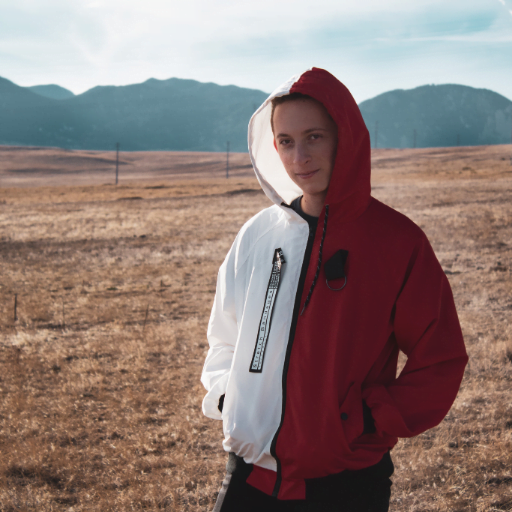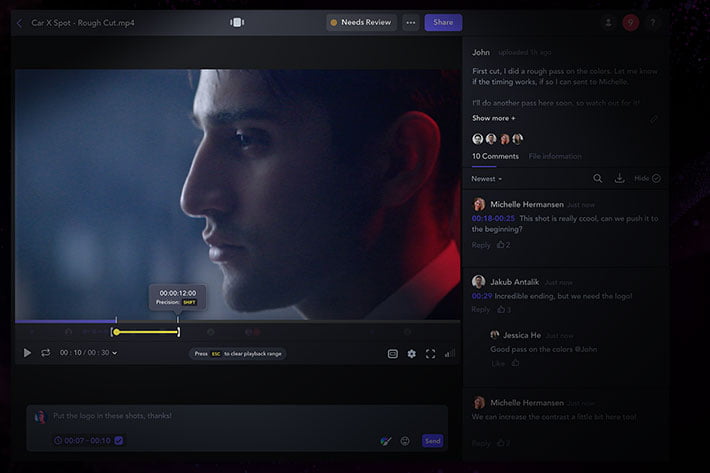Hey, I’m Tristen. I actually fell into freelancing entirely unintentionally. My goals shifted from the beginning of college to the end of it.
At the beginning I was dead set on becoming a Hollywood film director. Now, I really have no interest in that world, and I am pretty set on being in advertising, or other creative video production. I also had no intention of freelancing, but my openness to it has increased in the past year as I learned more about self-employment and personal finance.


I enjoy the idea of creating my own income and the flexibility of working remotely, but the instability is also a big problem for me.
So, as I graduated, my plan was (and still is, in some respect) to leverage my experience into a staff position, continue freelancing on the side, and then in a few years, unless I particularly enjoy my job, start a small production company of my own with a friend.
At this moment, two months after my graduation date, I am picking up more and more long-term contract work. It’s not enough yet to be self-sufficient, and if I were to get a full time job tomorrow, I would try and keep most if not all of my current contracts.
What inspired you to become a videographer, editor & animator?
Truth be told, I didn’t start to watch really excellent, inspiring films until I had already decided to major in film in Chicago.
I can’t really say if it was one thing that inspired me originally, but I was very active in my high school’s news broadcast, and made my own videos and short films, which I thought was a lot of fun. What set me more on the editing / motion graphics path was really being home during COVID.
It was perhaps the only skill set that I could really dive into and learn everything about, so I did, and I fell in love with it. In the past year, I’ve learned so much about post, and without that self-instruction, I don’t think I would be prepared for the real world of work like I am now.
Also, my experimental film and motion graphics teachers turned me on to some amazing work that showed me the potential of post-production.
How was the process moving from part time as content creator at DePaul to in-house at Engaged Tech Solutions?
To be honest, the student job was more difficult, just because there were actually deadlines. Engaged Technology was a startup and unpaid work, so I think it was much more of a learning experience for me. I used it as a way to speed up my workflow and master Premiere, since it was a lot of long-form instructional videos. I also started using it as an opportunity to create motion graphics that I wanted to be featured in my demo reels for future work.
How did you get your first freelance projects after University?
All of my work for the first couple months, until recently, has been entirely work through various contacts I’ve made. I don’t really know anyone where I currently live in Denver since I went to school in Chicago, but a family friend introduced me to a local cinematographer here, and I worked with him on a couple shoots before he brought me on in a contract capacity in February 2021 for Vivid Imagery. That position involves some on-set work, and working in an assistant editor capacity.
What’s your editing process once you have the files?
This depends on what kind of project I’m working on and the client. If I’m ingesting footage I like to use Resolve for their clone tool. This performs a checksum so I know that none of the footage gets corrupted.
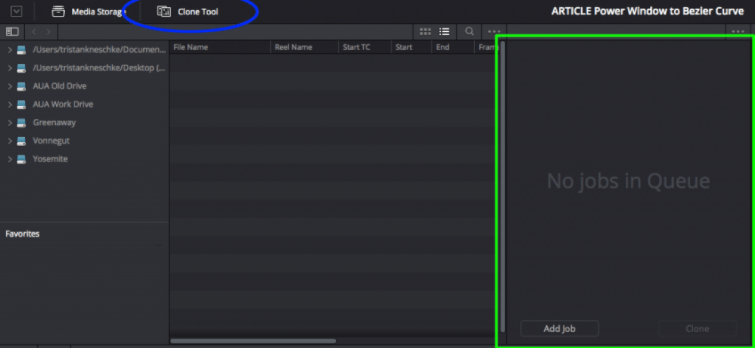
I also make backups here. Then I bring it into Premiere’s assembly workspace, and start organizing like crazy. I always overdo my organization and metadata when working collaboratively with other editors.
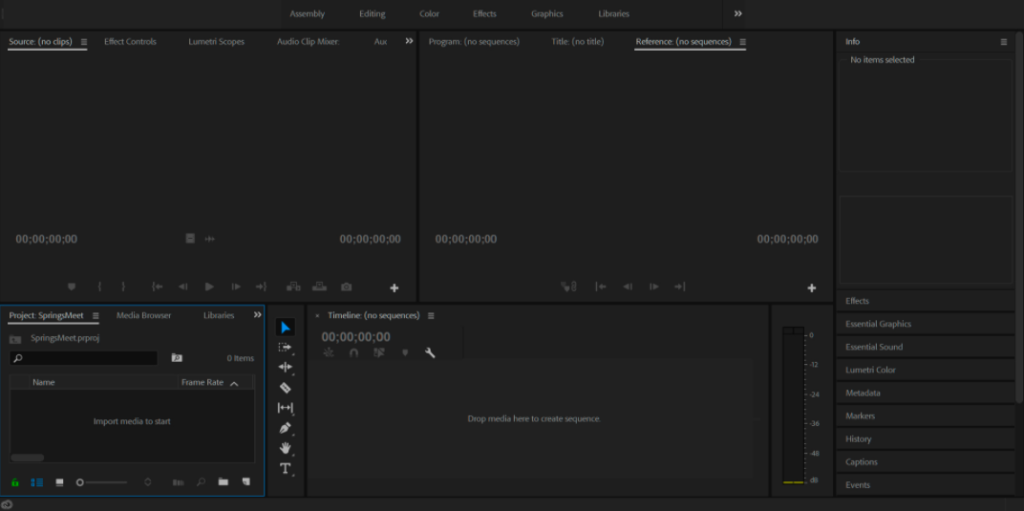
I can’t stand opening other projects with no notes, markers, etc. Usually I work with a treatment, script, or just general notes when editing. Depending on the needs of the project, I may add a “dynamic link” to After Effects or Audition, and once I’m done I will usually use Frame.io for timecode-specific notes and feedback.
Then, I do one or two rounds of revisions, and I upload the final deliverable to google drive.
Which platforms & tools do you use?
I know more programs than I use, but the ones I stick to are Resolve for ingest, Premiere for edit, Audition for anything I can’t do in Premiere (which isn’t much for my needs), After Effects in tandem with Mocha AE and Illustrator (and maybe photoshop but very rarely), and Media Encoder if you count that.
| Editing | Writing | Storage | Sound & music |
| Premiere | Google Docs | Dropbox | ?? |
| DaVinci Resolve | Microsoft Office | Google Drive | |
| After Effects | |||
| Adobe Media Encoder | |||
| Photoshop | |||
| Illustrator | |||
| Lightroom | |||
| Cinema 4D Lite |
Also, for photography I use Lightroom, and for some live stream event production I used OBS. I want to start learning Cinema 4D Lite soon.
Which project or video are you most proud of?
I think that my focus on motion graphics in the past year has helped me to stand out significantly from the pack. I have found that motion graphics really do make a huge difference, when done well, between amateur and professional projects. Also, learning how to show off my work well has been even more instrumental.
Redesigning my website from the ground up, and creating dedicated, kick-ass reels to show off my strengths has helped me immensely, I think.
Where can someone see your rates, if they’re interested in working with you?
Since freelance projects just sort of happened organically, I didn’t really think about creating packages or setting rates, but I generally don’t go below 20 dollars an hour, and my highest is 30 dollars an hour, depending on the budget. I’d be interested in hearing out possible new clients, but just know that I am also looking for full time work, and since I just got 3 new jobs in the past week, I may be hesitant to accept unless it’s a short term project.
What’s your advice to young videographers and editors just graduating in the middle of the pandemic?
For editors, I highly recommend reading Frame.io’s Workflow guide. Essentially a novel detailing from beginning to end the editing process, and it has a dark mode.. Goes very in-depth, and equips you with the terminology that you need to know to bridge the gap from “I think I can kind of edit” to “I have a decent grasp on things now.”

The good news for videographers, editors or animators is that there is actually a lot of work out there. Just be okay with expanding your search nationwide on LinkedIn. There are more jobs than you can apply for in a day, if full-time is your jam.

For networking, I know LinkedIn says only connect with people you know, but it’s totally okay to connect with someone at a company you are applying for and asking industry questions (Don’t ask to be hired).
Go directly to websites of production companies or potential clients, find executive producers’ emails, and if they’re not listed, see if you can leverage someone at the company through LinkedIn to get it to you.
You will notice a snowball effect where you start to meet more and more people, who know more and more people, who can introduce you to more people, etc.
LinkedIn does a great way of showing this visually to you, and even if you don’t establish a freelance relationship with any given studio or client, you do now have that informal connection, and if they ever need work in the future, they now know you are an option.
I had to quickly get over the cringiness of “networking” and just accept the reality of working in this industry. You have to put yourself out there, and show genuine interest in who you talk to. Try and learn from everyone you talk to.
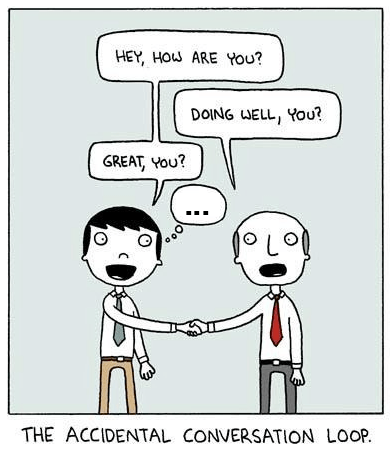
Also, final tip: don’t use premade resumes or websites. Dedicate some time to build them from the ground up with Illustrator or Wix, respectively.


I’ve used both Squarespace and Wix, and Wix, I’ve found, is far more customizable, and you can pretty much design the site however you want from the ground up (without needing knowledge of HTML).
How are you doing today and what does the future look like?
t’s been a rollercoaster the past couple weeks. Thought I had a couple amazing remote jobs that I applied for on LinkedIn, but, turns out, both companies were hacked and the scammers elaborately tried to get my information.
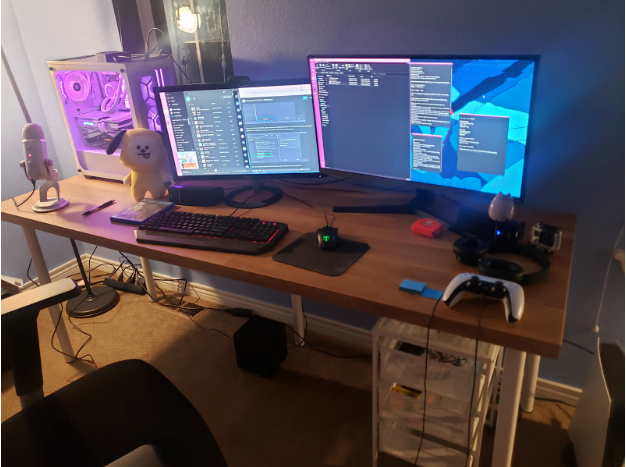
It was absolutely demotivating and humiliating and anxiety-inducing, but I’ve gotten 3 more clients in the past week and I just got asked to interview for an awesome (and totally not hacked) ad agency in Chicago later this week, which is my first real, non-informational interview after about 70 full-time applications.
''I have found that motion graphics really do make a huge difference, when done well, between amateur and professional projects''
